-- Exhibit–
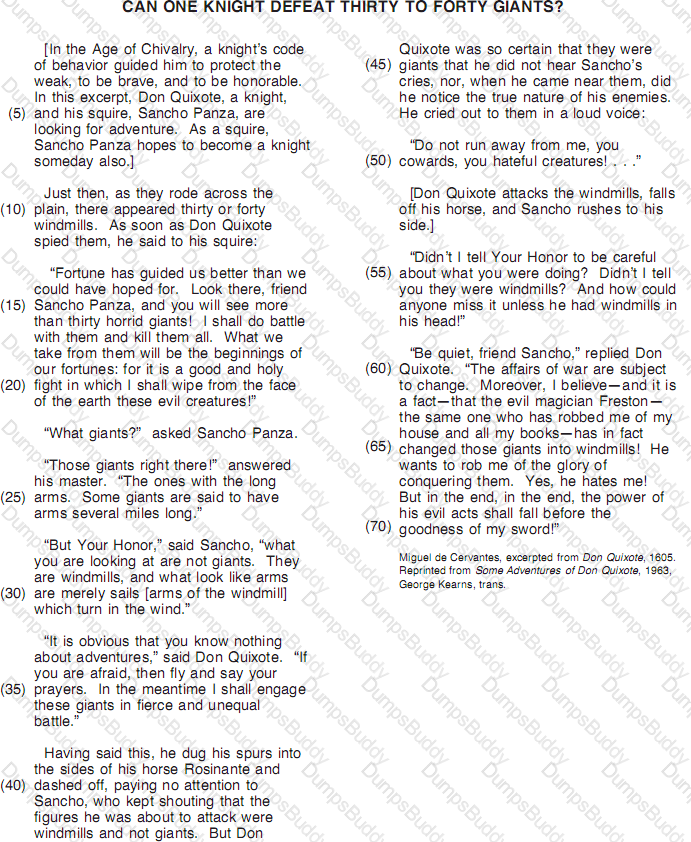
-- Exhibit --
What does Sancho Panza mean when he says that Don Quixote has “windmills in his head” (lines 57–58)?
-- Exhibit–
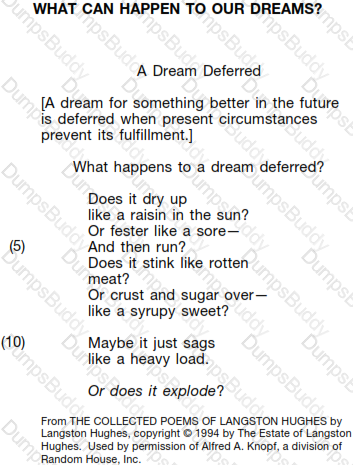
-- Exhibit --
Harlem is an area of New York City known for its African American and Latino cultures. Langston Hughes knew this area well.
How might a teacher in Harlem today use this poem to inspire young children?
-- Exhibit–
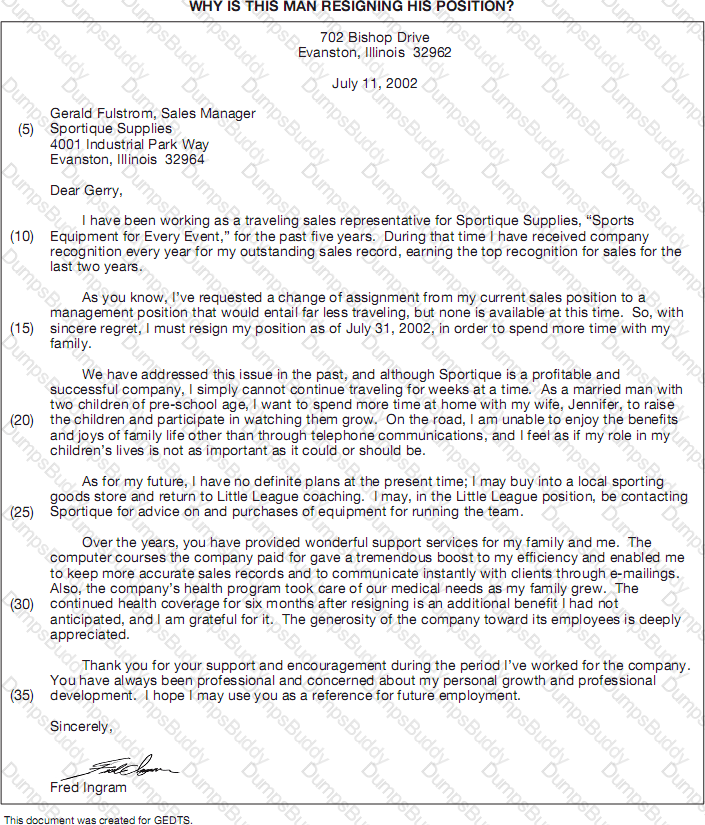
-- Exhibit --
Why is Fred Ingram resigning his position at Sportique Supplies?
Exhibit:
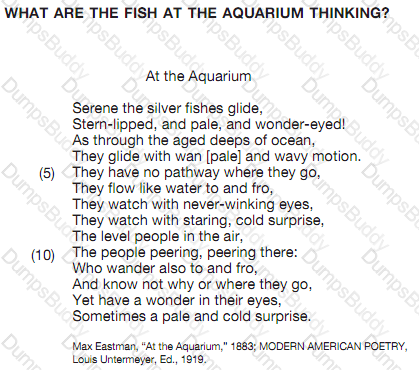
What feeling does the speaker attribute to the fish by calling them "wonder-eyed" (line 2)?
-- Exhibit–
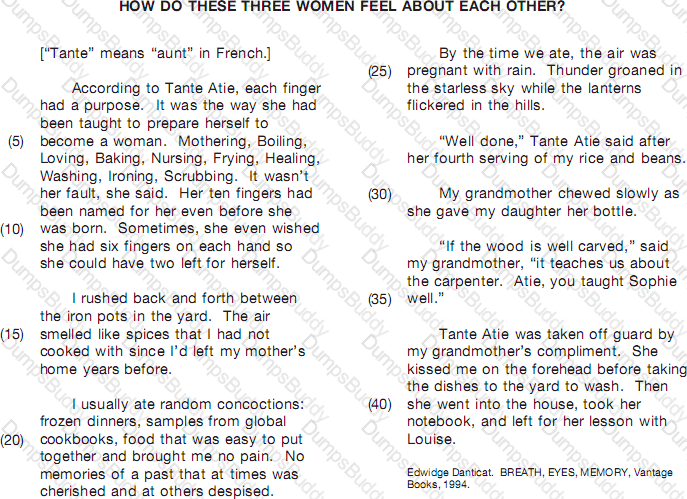
-- Exhibit --
What is the effect of describing the weather during the family dinner (lines 24–27)?
-- Exhibit–
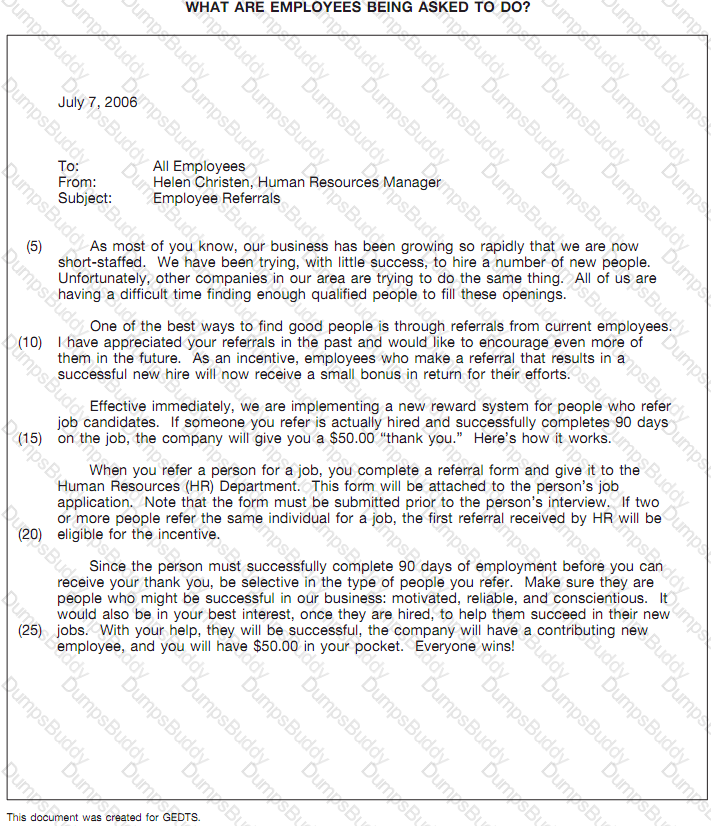
-- Exhibit --
Helen Christen, the Human Resources Manager, is relatively new at her job and has already implemented several new policies to support employees, such as child-care leave and GED classes.
How might this additional information affect how employees receive this memo?
-- Exhibit–
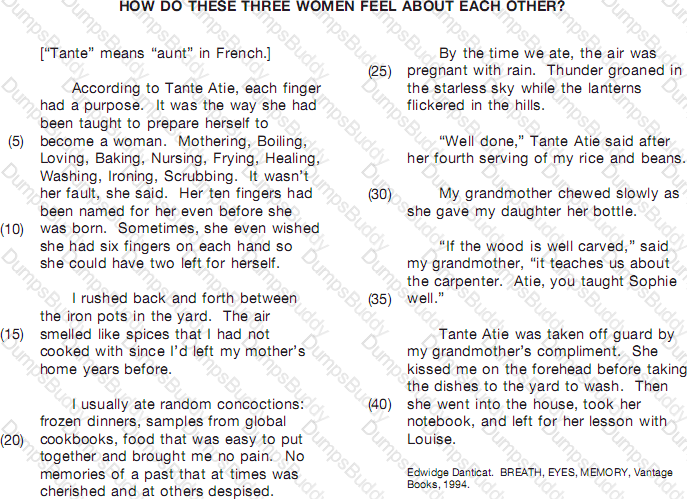
-- Exhibit --
Which word best describes the feeling the grandmother has for Tante Atie?
-- Exhibit–
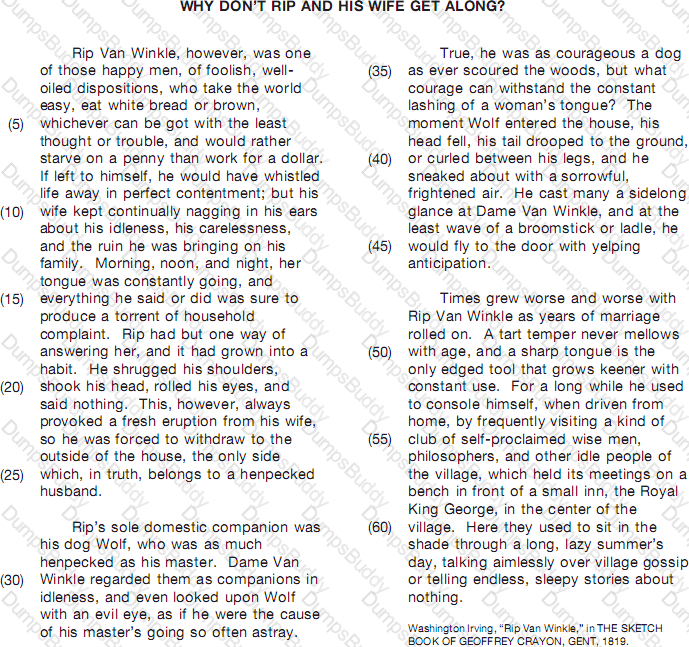
-- Exhibit --
When Wolf perceives “the least wave of a broomstick or ladle, he would fly to the door with yelping anticipation” (lines 43–46).
What is Wolf doing?
-- Exhibit–
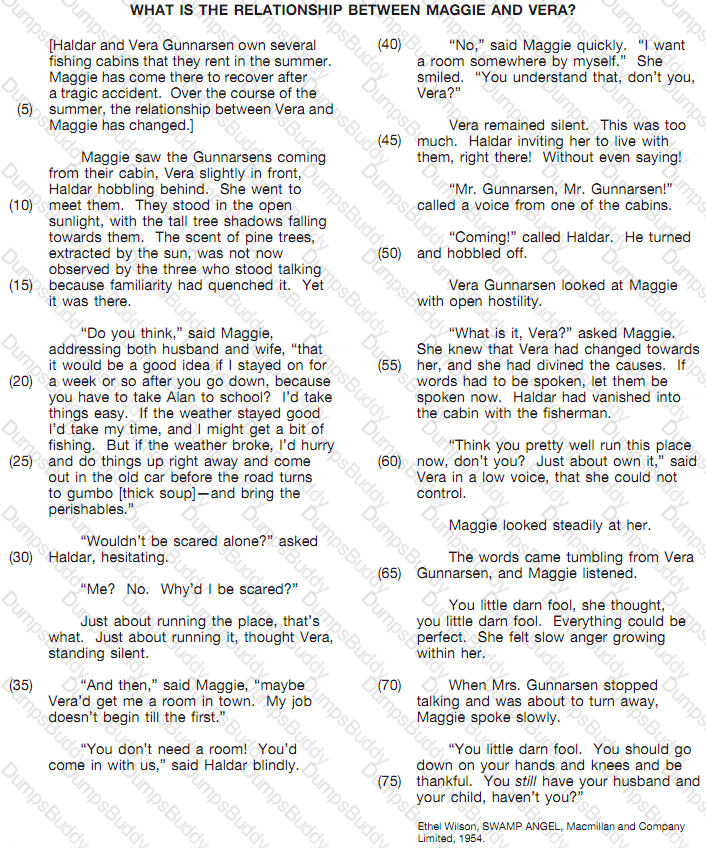
-- Exhibit --
Why does the narrator use the word "blindly" (line 39) to describe Haldar’s offer to Maggie of a room in their home?
-- Exhibit–
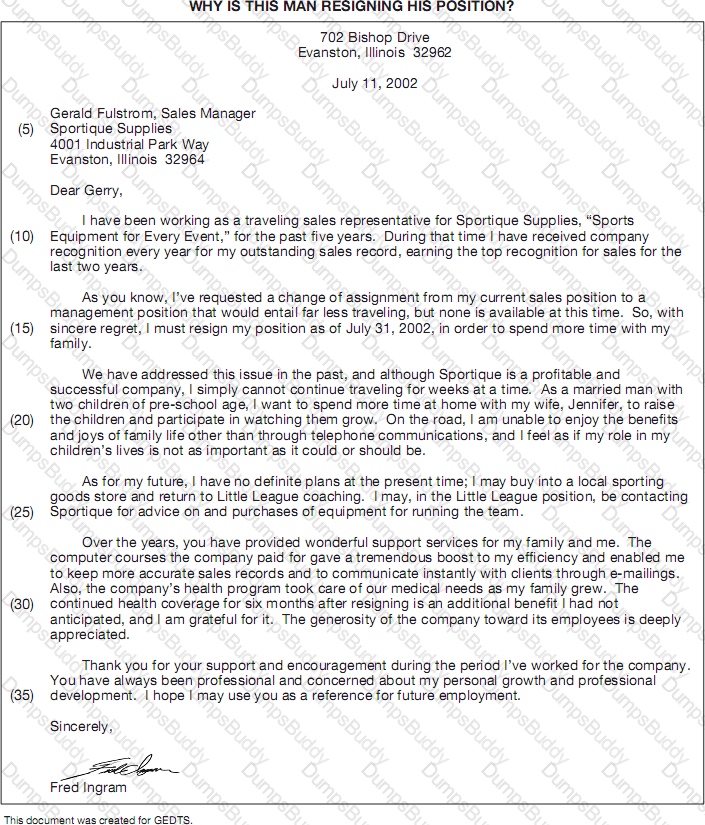
-- Exhibit --
Fred Ingram states in his letter that his role in his children’s lives “is not as important as it could or should be” (line 22).
Based on this statement, what might the reader conclude about Fred Ingram’s beliefs about rearing children?
-- Exhibit–
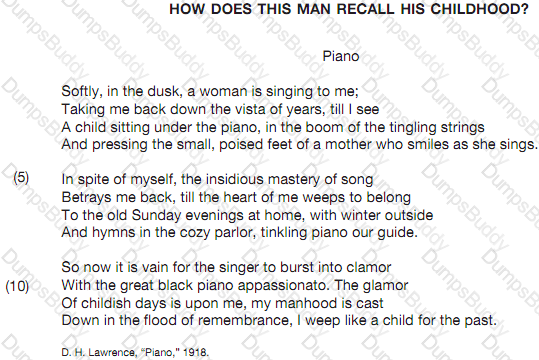
-- Exhibit --
What does the speaker of the poem associate with singing and the sounds of a piano?
-- Exhibit–
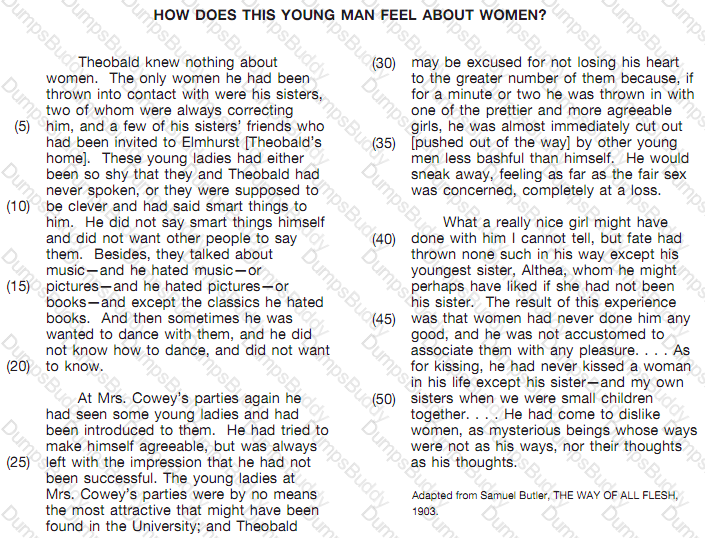
-- Exhibit --
Why does the narrator include details of Theobald’s dislike of music and pictures and books?
-- Exhibit–
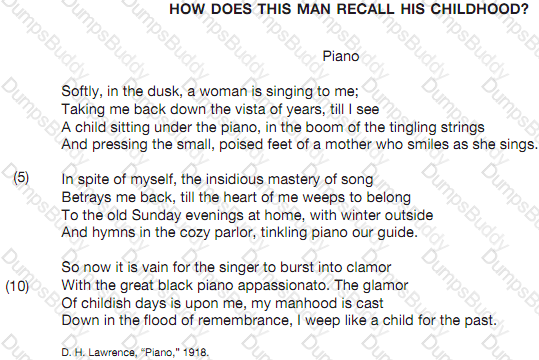
-- Exhibit --
In the second stanza, the speaker says that "the insidious mastery of song / Betrays me back" (lines 5–6). What do these lines mean?
-- Exhibit–
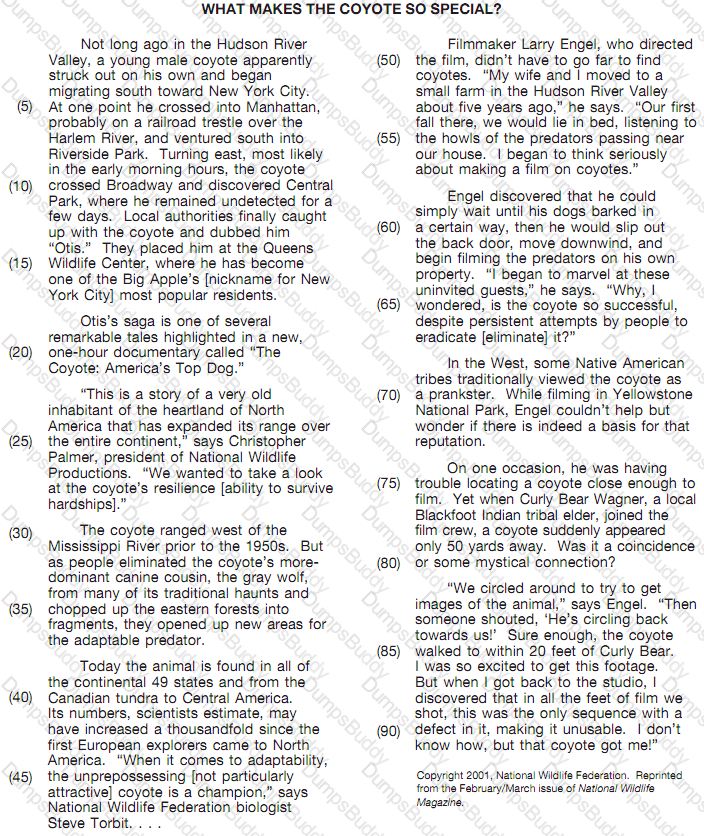
-- Exhibit --
This documentary film includes several other stories about coyotes besides the ones related here. Based on the stories in this excerpt, what are the probable topics of the other stories?
-- Exhibit–
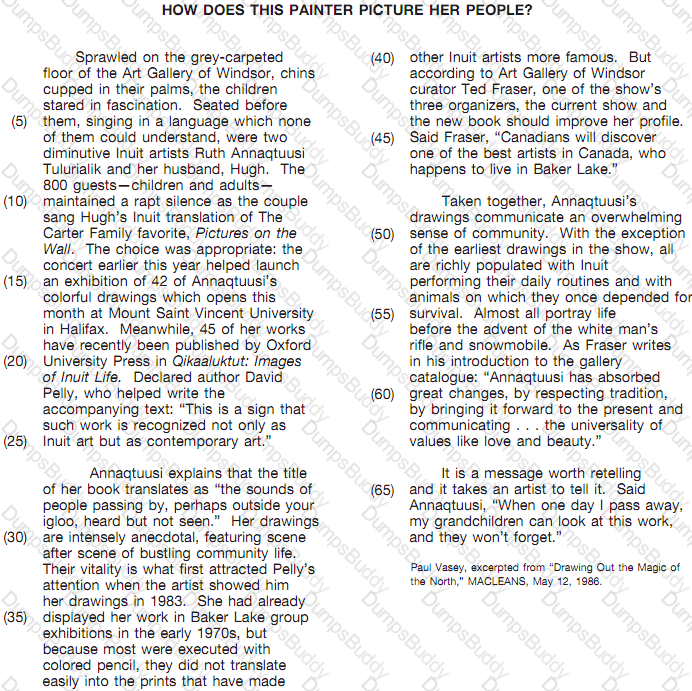
-- Exhibit --
Why are the opinions of Ted Fraser and David Pelly presented in this excerpt?
-- Exhibit–
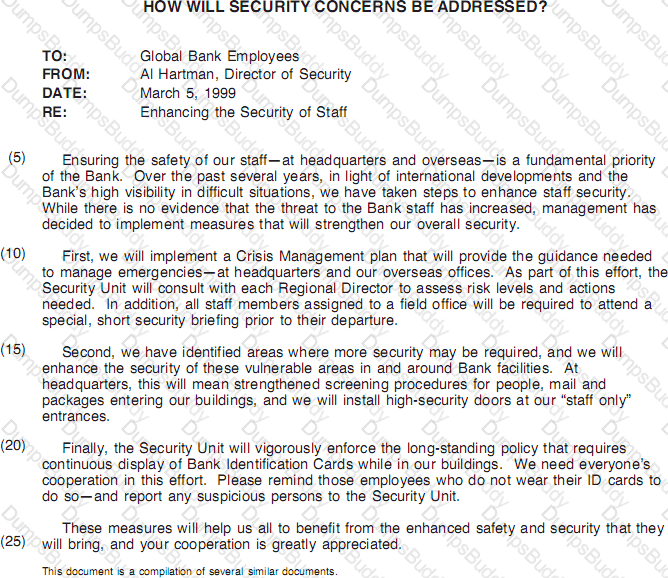
-- Exhibit --
Which of the following phrases indicates that the Bank is trying not to upset the employees?
-- Exhibit–
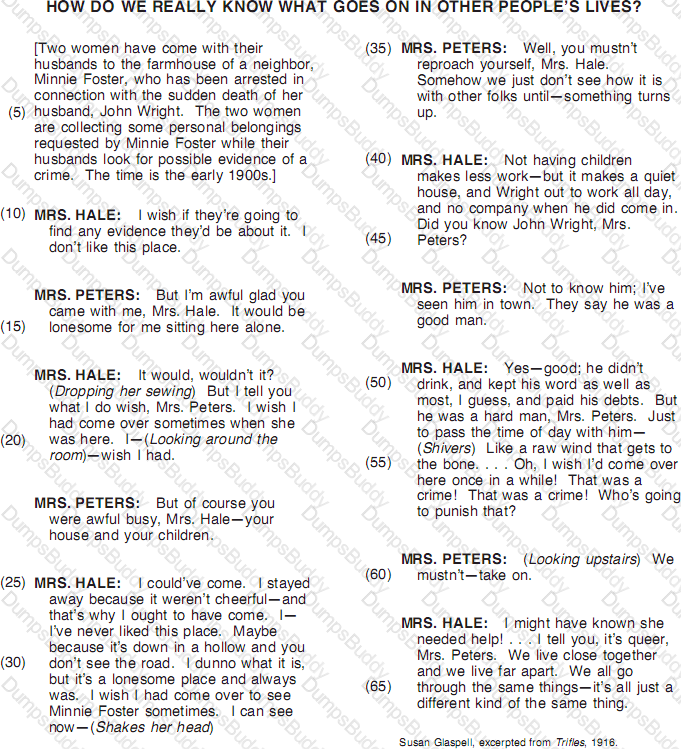
-- Exhibit --
What is meant by Mrs. Hale’s comment, “I might have known she needed help” (lines 61–62)?
-- Exhibit–
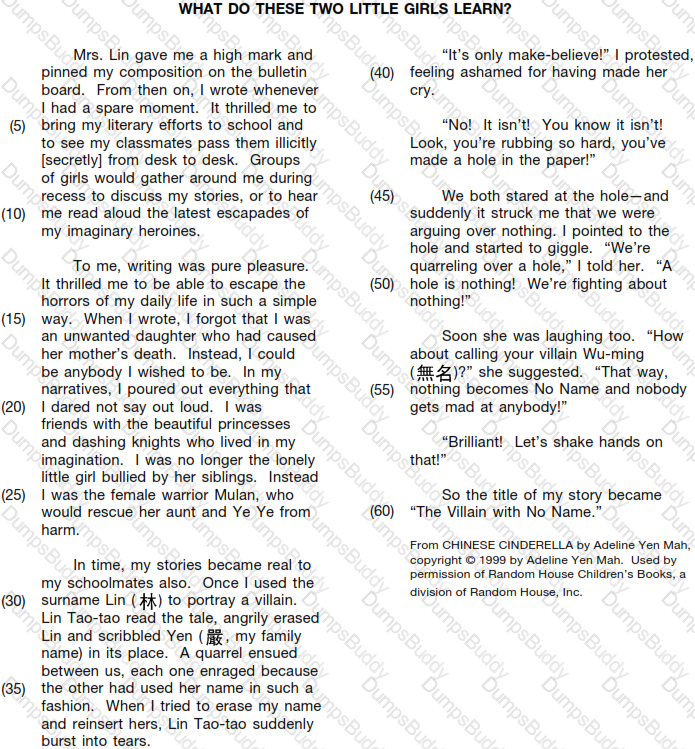
-- Exhibit --
Suppose that as an adult, the narrator had a niece who didn’t like school. Based on the way the narrator handles her family problem in this excerpt, what advice would the narrator probably give to her niece about handling the problem at school?
-- Exhibit–
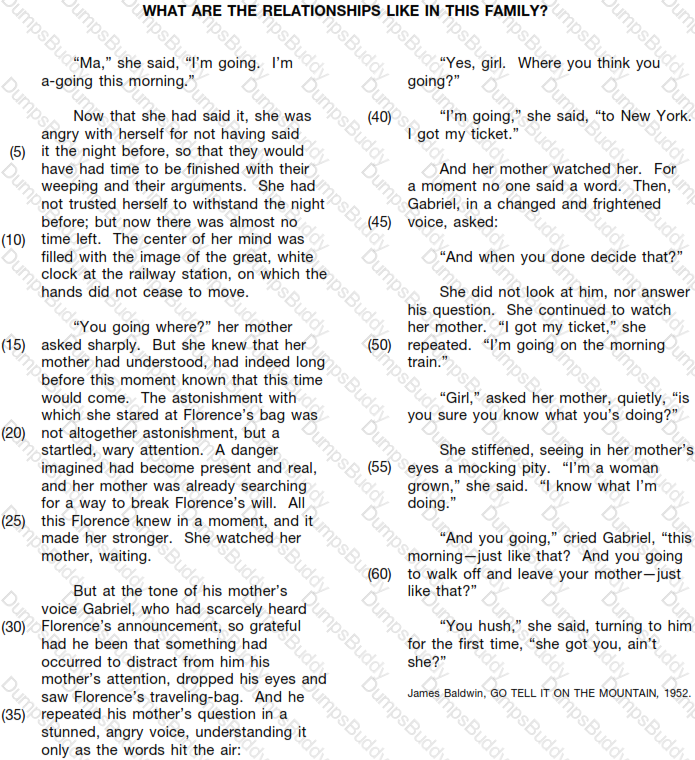
-- Exhibit --
Which one of the following pairs of ideas does the passage contrast?
Exhibit:
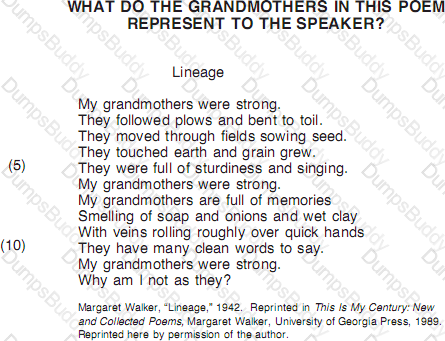
What is suggested about the grandmothers in the line “With veins rolling roughly over quick hands” (line 9)?
-- Exhibit–
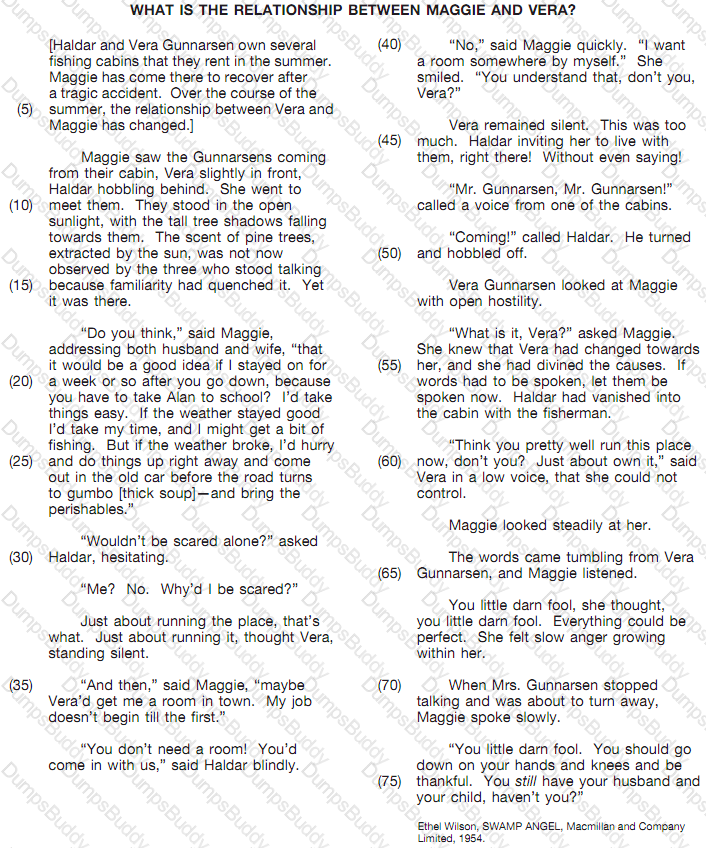
-- Exhibit --
Based on Haldar’s character as revealed in this excerpt, what is he probably like as a father?
-- Exhibit–
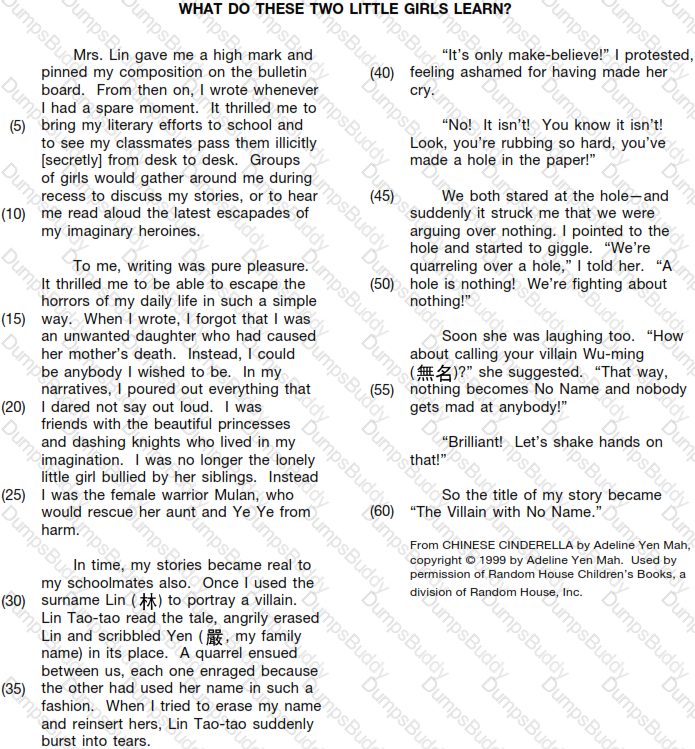
-- Exhibit --
The narrator tries to appease her friend by saying, "It’s only make-believe," but her friend cries out, "No! It isn’t! You know it isn’t!" (lines 39–42). With what are the girls wrestling?
-- Exhibit–
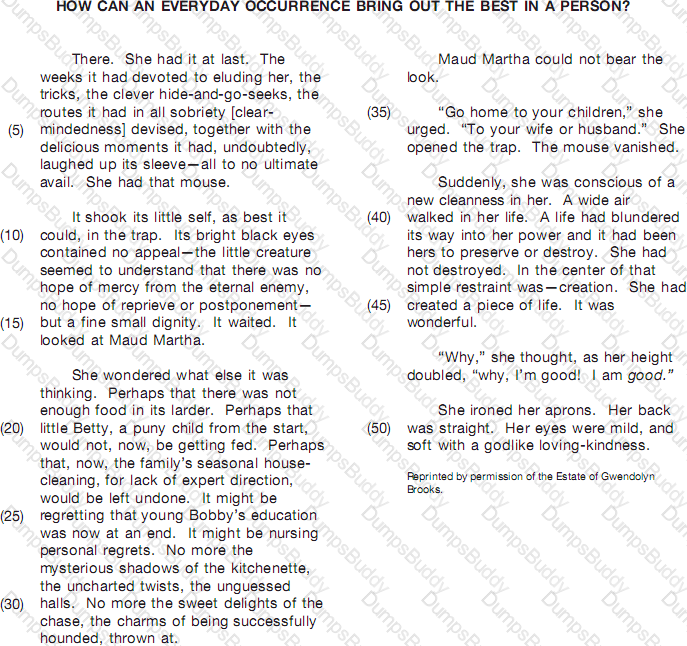
-- Exhibit --
After reading this excerpt, when might a reader go back to it for inspiration and guidance?
-- Exhibit–
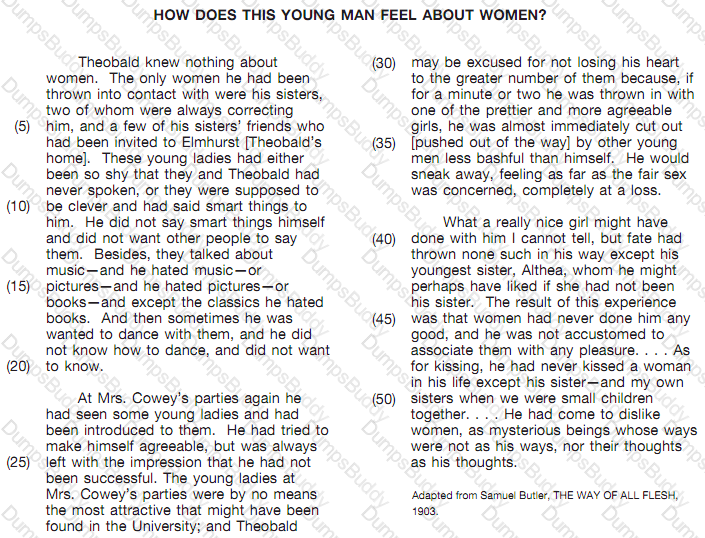
-- Exhibit --
As a student, with which assignment would Theobald probably have been most comfortable?
-- Exhibit–
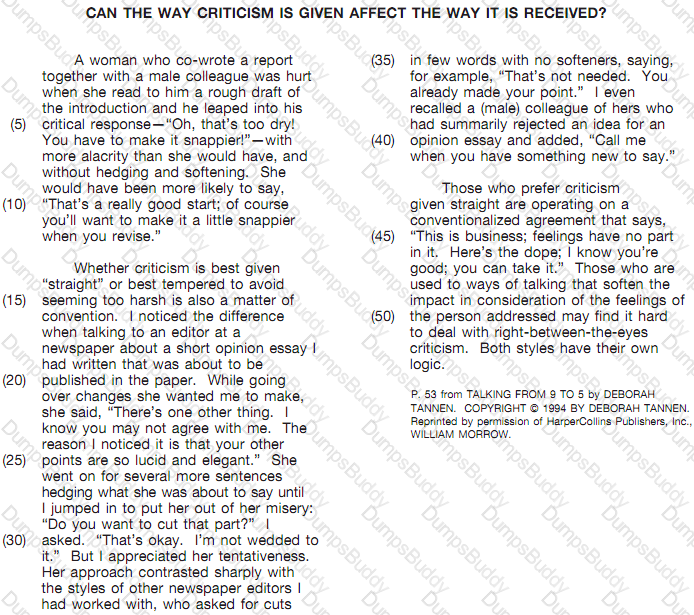
-- Exhibit --
In her book THE ARGUMENT OFCULTURE, the author claims that "the modern culture is far too critical—many prefer to shout down . . . the opposition points of view rather than listen to them."
Based on the information above and the information in the passage, which of the following best summarizes the author’s view about criticism?
-- Exhibit–
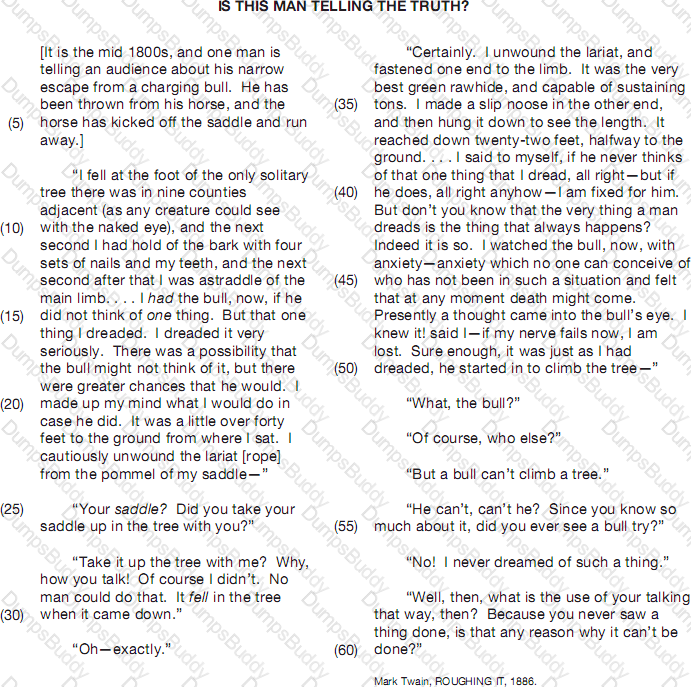
-- Exhibit --
Later in the story, a member of the audience says, “I made up my mind that if this man was not a liar he only missed it by the skin of his teeth.”
Judging from this information and the character of the narrator as revealed in this excerpt, which one of the following is probably the narrator’s greatest talent?
-- Exhibit–
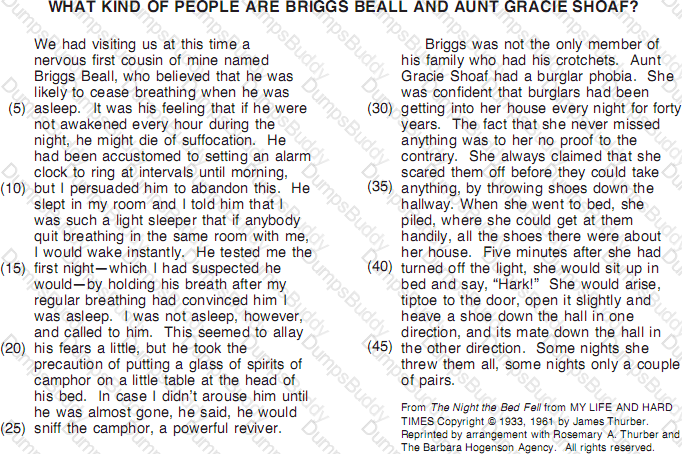
-- Exhibit --
When he sets his alarm clock to ring at intervals during the night, of what does Briggs want to make certain?
-- Exhibit–
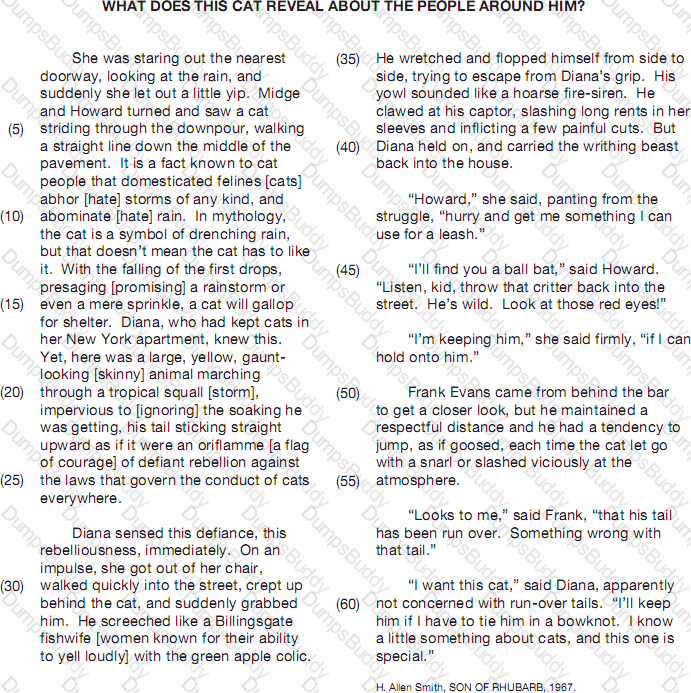
-- Exhibit --
The cat in this excerpt clearly expresses his feelings to Diana when she catches him. Which one of the following people probably feels the same way as the cat?
-- Exhibit–
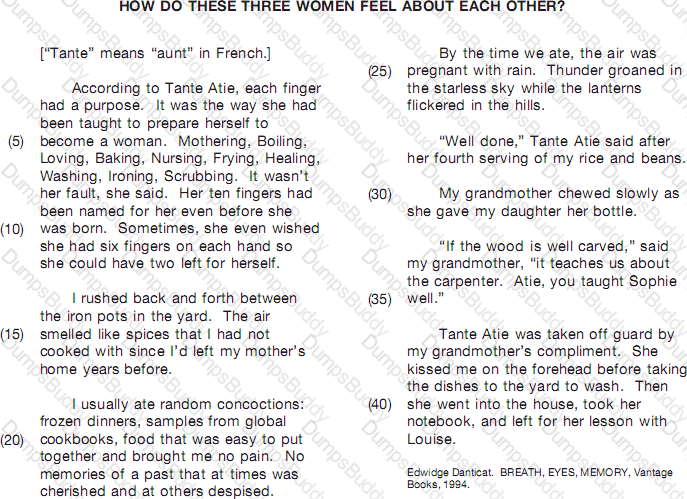
-- Exhibit --
When Tante Atie was prepared to become a woman, what skills was she taught?
-- Exhibit–
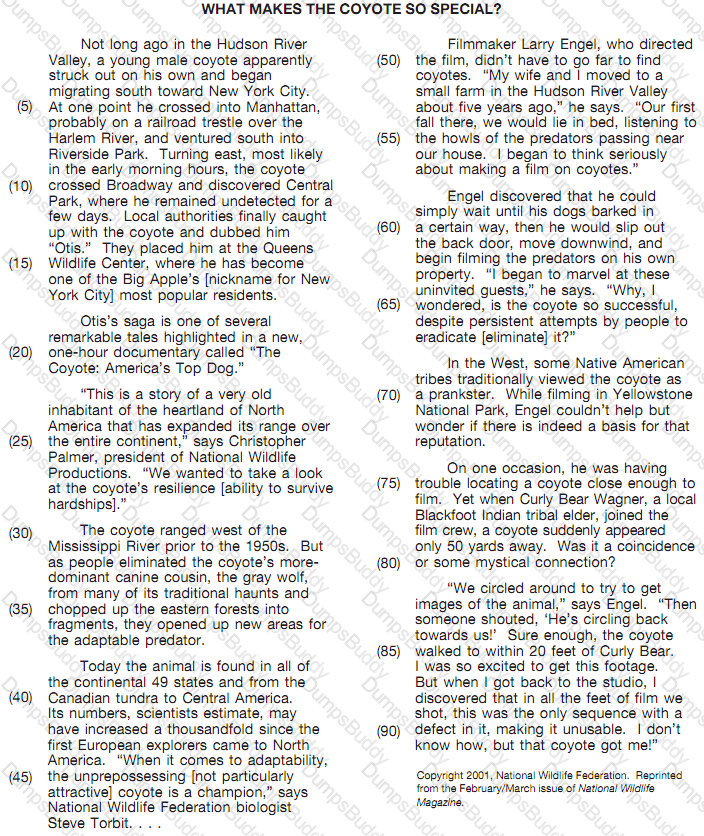
-- Exhibit --
What is suggested about Engel’s attitude toward coyotes by his statement, "I began to marvel at these uninvited guests. Why, I wondered, is the coyote so successful, despite persistent attempts by people to eradicate it" (lines 63–67)?
-- Exhibit–
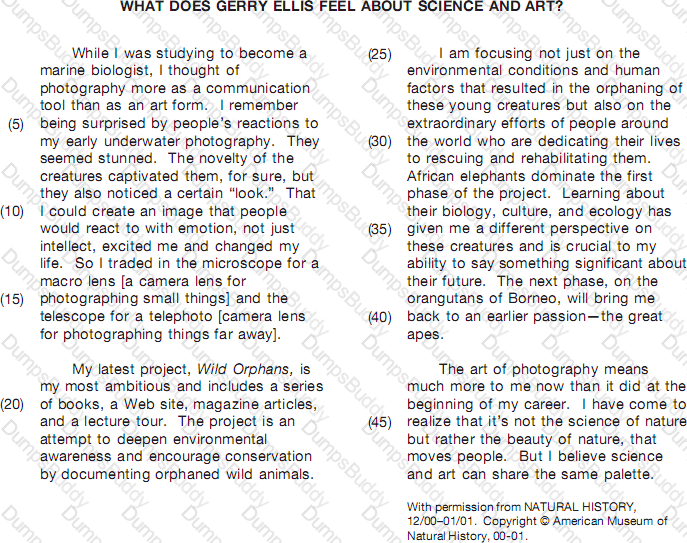
-- Exhibit --
Why did the author trade in “the microscope for a macro lens and the telescope for a telephoto” (lines 13–16)?